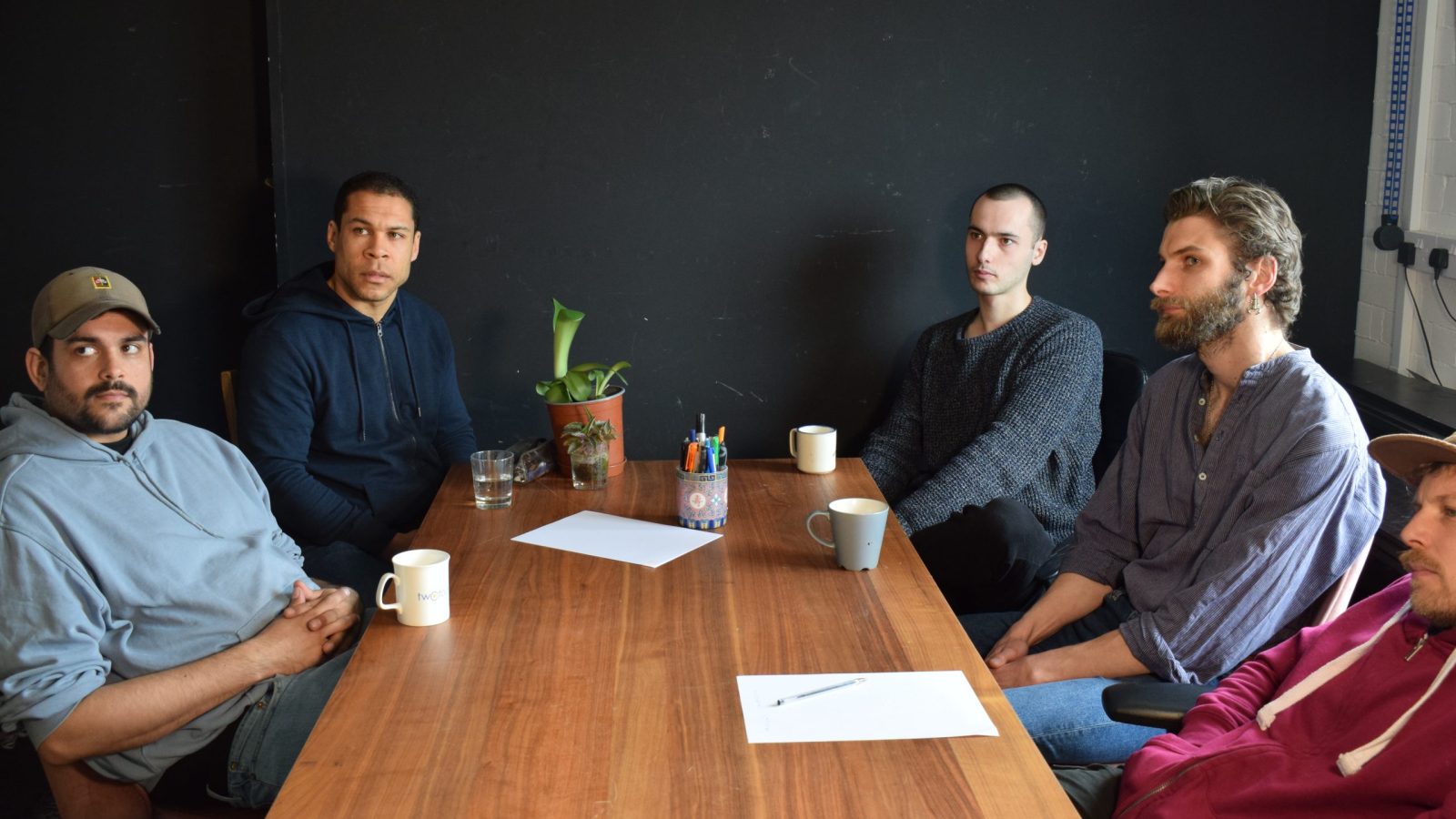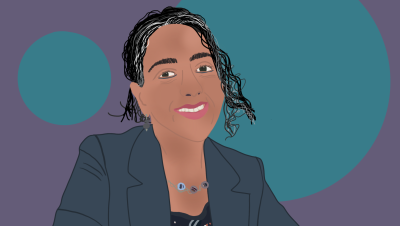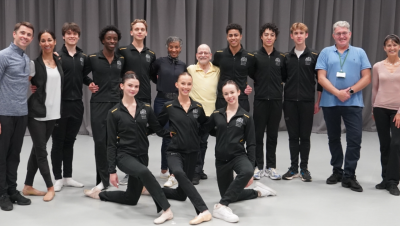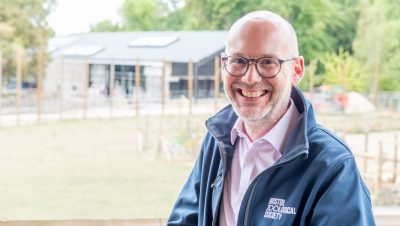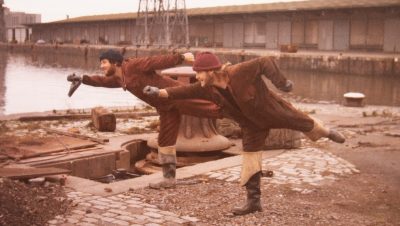Features / VAWG
Empowering men to dismantle patriarchy and combat male violence
Meggan Baker and Bryony Ball are survivors leading essential education and change, or more colloquially known as SLEEC.
With extensive experience working as case workers in anti-trafficking, domestic abuse and women’s support services, they decided a shift was needed in the perpetrator/survivor narrative. As a result SLEEC was born.
Originally it started five years ago as a mutual aid fund for survivors of domestic, sexual, male and state violence. Say that is very much at the core of what they do.
is needed now More than ever
Now the aim of the organisation is to change the conversation around those who have experienced violence and harm. Through their workshops and course they are empowering men to dismantle patriarchy, combat misogyny and take accountability for male violence.
As hit Netflix show Adolescence about a young boy who murders a girl from his school is opening discourse around misogyny around the country, the pair have decided to speak out on the issue and what they’re doing to tackle it.

The organisation is led by survivors
In 2021, they launched their Emergency Man’s Learning Course, to work alongside men to unpack and explore their relationships to things like patriarchy.
But also for them to be in a space with other men, actively looking at how they dismantled those systems within themselves.
Meggan tells me that because men are “very solutions orientated”, they naturally gravitate to searching out the problem and finding that quick fix. But within their work they have found this isn’t as effective as getting them to look within for how these systems are internalised first.
“I think a lot of people of all genders, because we aren’t raised to be introspective of these systems of harm and how they’ve impacted us, we don’t question it and as a result we uphold it and perpetuate it.
“You can read all the books by Bell Hooks, you can look at the patriarchy externally, but until you recognise that you yourself in particular as a man have internalised that, you’re never going to be able to dismantle that. I think that is really not something that most men have ever heard before.”

The group centres and amplifies victim’s voices
They ran that course for a few years, even bringing it into schools in Bristol in 2023. This year they launched their six-week online Radical Accountability in Action course.
Meggan says: “That ‘in Action’ part is really important, because we can’t just chat about this stuff. We actually have to action things, as opposed to theorising and talking about them.
“What are you actively doing to take accountability? And possibly why men need to learn how to hold themselves accountable and other men in their lives. That is how we start to disrupt male violence, its a form of intervention.”
She is keen to emphasise that merely being present isn’t enough, but that they must partake in continuous learning and unlearning and unpacking.
They recognise that identifying an issue is one challenge, but calling it out is another.
She explains: “They have a deep fear of groups of men and that lots of them actually have a lot more closer female friends than they do men. Often because of that feeling of alienation if they don’t uphold this narrative of what being a man is.
“Something else that comes up when we’re learning how to challenge misogyny in real time is that a lot of men say that one of the barriers to that is safety.
“We’re trying to decipher whether that is a genuine feeling of a lack of safety or discomfort.
“I would argue that most of the situations where someone’s made like a rape joke in a pub that actually you’re feeling uncomfortable not unsafe. We as women and femmes, we are actually unsafe to challenge.
“Discomfort you can move pass, but if you’re unsafe you have to do things to protect yourself. But we recognise that there’s still social expectations and fears that men experience.”
View this post on Instagram
The pair are keen to highlight that despite the serious and heavy topic, the workshops are a space where people can exist as themselves without judgement, but that they will be challenged.
“The way in which we facilitate the space, there’s a lot of joy and humour and us being just like a pair of hags that are just ourselves. That I think is really disarming for people because we’re not there to do this slick powerpoint, we’re human too,” says Meggan lightheartedly.
Bryony adds: “A lot of people assume that we’re gonna be very much telling them off, telling them what is right and wrong, or that they’re bad. They realise very quickly that it is a space where we can all make fuck up and make mistakes and that’s it’s okay to make mistakes and get it wrong because everybody will.
“We come from a place where everybody has the ability to cause harm because we’re raised in a society that is fundamentally based on harm, violence and power. We all need to be accountable, ourselves included.”
They believe what they’re offering is unique in that as survivors these men can ask questions directly to those who have experienced harm. Questions that are grey areas.
She adds: “A lot of men are scared of that, for me, there are things in life I’m scared to ask about, but then that’s where more harm happens.
“Without that judgement, we can build those conversations that are uncomfortable, that are messy, that are complex.
“For the men that we see commonly there tends to be this idea of having to get it right all the time, to have all the knowledge, having to have the solutions, be the ones in control and be the protector in all situations in good and bad ways.”
Strength is a theme that comes up regularly in their courses. She describes what “men find in these spaces is that they are able to be vulnerable with other men, which has never happened before.
“I think being strong but not able to express your needs and emotions is one of the biggest impacters of male violence and barriers to understanding problems.
“Men do listen to other men more. So if you’re able to hold those conversations, they’ll often be more constructive and men will listen and respond in a less combative way a lot sooner.”
………………………………………………………
Read next: ‘We need to keep talking about violence against women and girls’
………………………………………………………
One of the bigger parts of their work is getting people to look at separating theirs actions and their behaviour from their identity. They say its easy to feel attacked.
Meggan explains: “That because of the culture which we live in, which uses language like rapist, monster and perpetrator, what they do is they fix you in an identity that doesn’t mean you can really come of out.
“What we try to do is get men to understand that there’s a real difference between the two and that actually we can work on changing our behaviour because behaviour doesn’t have to be fixed, whereas your identity is fixed to a degree.
“Getting them to stop operating in the mindset that I’m a bad man, I’m a good man, there’s no such thing, there are just men. There’s shitty behaviour going on here, but at your core you aren’t a bad person.”
View this post on Instagram
They both recognise that they aren’t necessarily reaching the men that need to do the work the most.
The men who attend their workshops and classes are already willing to recognise and act upon issues and patterns of behaviours in themselves and others. But they are confident that this will cause a ripple effect, that will indirectly reach all men.
Bryony recalls a recent interaction: “We had someone ask us if sexism was really a thing? Are women really worse off in our society, because I feel like they’re not and we’re just all called predators all the time. Those things we’re having to unpack. That can be quite difficult, but necessary.
“We do need to speak to those people. We want to hear from those people because that’s where these problems are. If we’re not actually understanding why they’re feeling that, then we’re not getting to the roots of it.
“We need to be holding those faces and saying that’s interesting, that you think that, where does that come from?
But it is slow progress Meggan, “Years ago I used to be like I wanna change this and change that and actually the reality is we’re not going to see that much difference in our lifetime, because of the time it takes to create fundamental change.”
This year they also launched their free online gym intervention space. Each session is specifically curated and men can come along to explore and have discussions in a non-committal way.
They explain: “Gyms are a prominent feature in men’s lifestyles and the gym culture that goes alongside that. This idea of self development and getting fit is a big part of that.
“We thought why don’t we apply that to your own unpacking of patriarchy and rape culture? Because male violence is a public health issue, we don’t frame it in that way, but it is.
“If you come to this space, you might leave knowing something more and getting a understanding of yourself.”
Their next gym session is on April 15, you can sign up here.
All photos: SLEEC
Read next:
- £1m to be awarded to Safe Link
- Rape survivors ‘will be believed’ says chief constable
- Candlelit vigil held to raise awareness of impact of violence against women and girls
 Our newsletters emailed directly to you
Our newsletters emailed directly to you